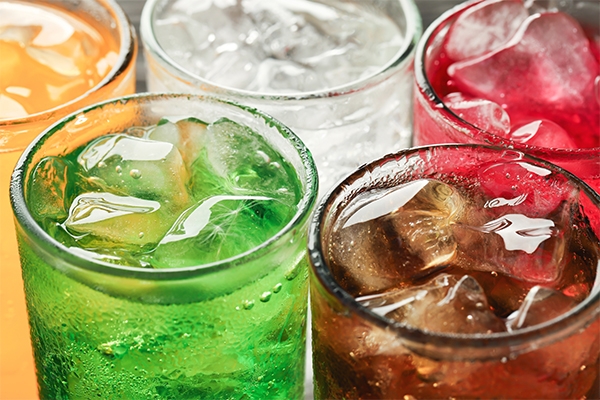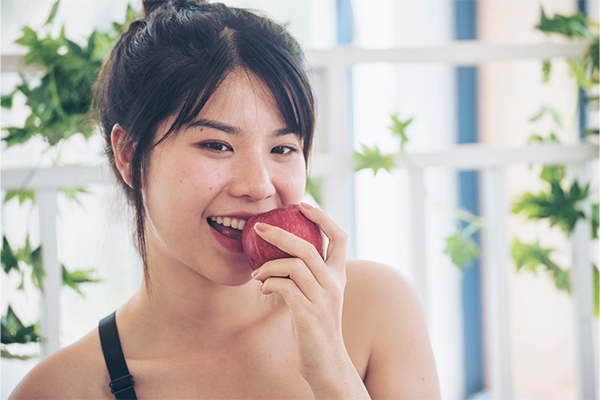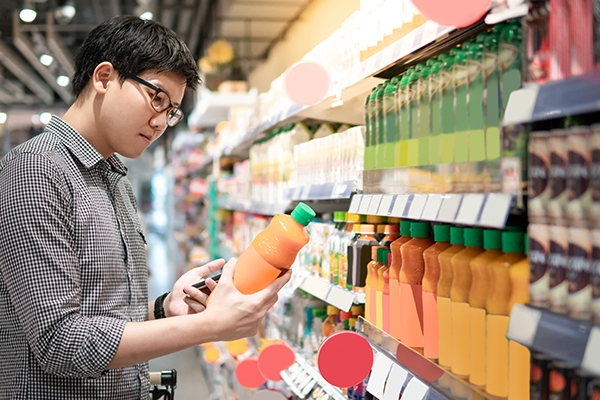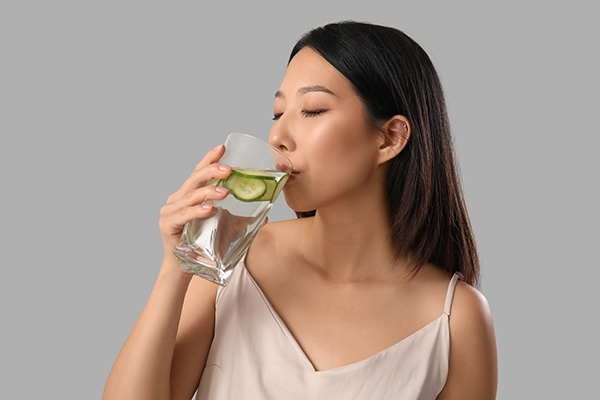Sugar Content in Your Drink

Are you an ice cream lover? If so, did you know that an average serving of ice cream contains 22 grams of sugar? That means it contains 44% of your daily sugar intake limit. And what about fruit juice? While 100% fruit juice has no added sugar, it contains natural sugars and calories.
What are sweetened beverages?

Sweetened beverages are drinks with added sugar, such as brown sugar, corn sweetener, corn syrup, dextrose, fructose, glucose, high-fructose corn syrup, honey, lactose, malt syrup, maltose, raw sugar, and sucrose. These include sodas, fruit juices, sports and energy drinks, sweetened water, and tea and coffee drinks with added sugar.
Like solid foods, sweetened drinks are usually high in calories but lack the filling effect of food. A study of 91 beverage products in Indonesia found that the average sugar content per serving was 22.8 grams or about 86.3 g/1,000 ml. In sports drinks, sugar can contribute up to 93.33% of the product's total energy.
Studies have shown that regular consumption of soft drinks increases the risk of several health issues, including weight gain or obesity, type 2 diabetes, heart disease, kidney disease, non-alcoholic liver disease, tooth decay, cavities, and gout.
People who consume soft drinks—1 to 2 cans a day or more—have a 26% higher risk of developing type 2 diabetes than people who rarely consume them.
A study of 33,097 individuals found that those with a genetic predisposition for obesity who regularly consumed sugary drinks were more likely to be obese than those who did not. This suggests that adopting a healthy lifestyle, such as avoiding sugary drinks, may lower this hereditary risk.
The Indonesian Ministry of Health recommends limiting daily sugar intake to no more than 50 grams or four tablespoons. However, a single serving of carbonated drinks can contain 33.6 grams of sugar or 67.2% of the daily limit.
This means other food sources should only contribute 32.8% of the safe sugar intake. Therefore, reading the nutrition label before buying a product is crucial.
Added sugar consumption is often linked with an unhealthy lifestyle. Studies show that adults and teens who smoke, don’t get enough sleep, don’t exercise regularly, eat fast food, and don’t eat fruit periodically are more likely to drink soda.
In addition, teens who drink soda often spend more time in front of screens, watching TV, using their phones and laptops, or playing video games.
Rethink your drinks
Take these small steps to reduce sugar in your drinks and stay on track for a healthier life!
1. Drink water

For a healthier beverage, choose calorie-free water.
Tip: For added taste, add berries or slices of lime, lemon, or cucumber to your drink. This might be a refreshing option without adding calories or sugar.
2. Eat fruit instead of 100% fruit juice or fruit drinks

Fruit is high in fiber and lower in sugar than 100% juice or fruit drinks.
3. Read nutrition labels carefully to check sugar content

Cutting back on sugar isn’t as simple as avoiding sweets. Many drinks contain hidden sugars.
Tip: Check nutrition labels for added sugars listed below as total carbohydrates. The higher the sugar appears on the ingredient list, the more sugar is in the drink.
4. Encourage your family to choose healthy drinks

Soda is sweet, but other beverages like coffee or sports drinks can also contain a lot of sugar. For example, a Frappuccino can have 34 grams of added sugar, and a single-serving sports drink can have 48 grams— close to 100% of your daily limit.
Tip: Cut out one sugary drink daily and replace it with flavored water with lime or orange juice. Add fresh fruit to your water, or enjoy an apple with a glass of cold water.
Are you at the coffee shop? Skip the flavored syrups and whipped cream, which are high in sugar and calories. Choose low-fat, nonfat, or unsweetened alternatives like soy or almond milk. Or, go back to black coffee.
Are you at the store? Read nutrition labels carefully to pick drinks low in calories, added sugars, and saturated fats.
Are you on the go? Refill a reusable water bottle throughout the day to stay hydrated without added sugars.
At GWS Medika Clinic, a health clinic in Jakarta, you can consult about healthy eating habits and blood sugar control. Knowing your blood sugar levels early on will help you manage your health optimally.



